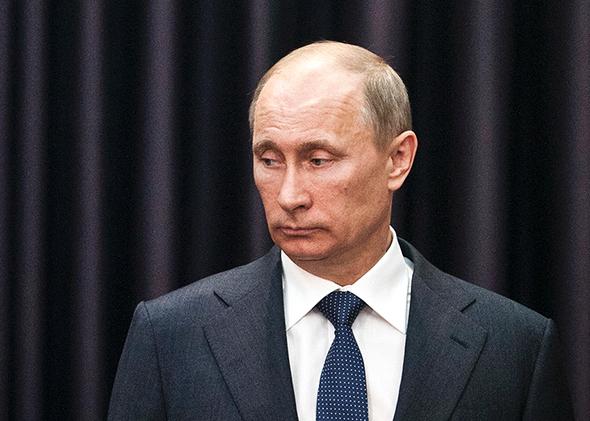LONDON—Back in 2006, an energy company called Rosneft floated itself on the London Stock Exchange. Even for a Russian company, its prospectus, as I noted at the time, contained some unusual warnings. “Crime and corruption could create a difficult business climate in Russia,” the document noted; some directors’ interests “may cause Rosneft to engage in business practices that do not maximize shareholder value.”
This was only fitting: Rosneft was created by a blatant act of thievery. A couple of years earlier, the Russian government had forced another oil company, Yukos, into bankruptcy by demanding $30 billion in back taxes and eventually sending its chairman, Mikhail Khodorkovsky, to a labor camp (from which he was recently released). Yukos’ assets were then sold to a mystery company that gave its address as that of a vodka bar in Tver. The mystery company in turn sold the property to Rosneft for a pittance, and no wonder. Rosneft’s major shareholder was the Russian government. Its CEO was President Vladimir Putin’s deputy chief of staff.
As I also wrote at the time, the Rosneft sale established a principle: Illegally acquired Russian assets can receive the imprimatur of the international financial establishment, as long as they are sufficiently valuable. This general principle has since been applied to many Russian assets in the United States and Europe, especially Britain. American readers may not realize the extent to which millionaires and billionaires from the former Soviet Union dominate the London art and property markets. Some of that money represents oil profits. But some of it comes from theft.
That tacit decision to accept all Russian money at face value has come home to roost in the past week. Some of the general European reluctance to apply economic sanctions to Russia is of course directly related to the Russian investments, interests, and clients of European companies and banks. But in fact, the laundering of Russian money into acceptability, in both Europe and the United States, has had far more important consequences in Russia itself.
Most Russians don’t draw a line, as we do, between “economic issues” on the one hand and “human rights” on the other. In Russia, corruption and human rights are actually one and the same issue. The Russian elite controls the media and represses dissent precisely because it wants to protect its wealth. At the same time, the elite knows that its wealth derives directly from its relationship to the state, and thus it cannot afford to give up power in a democratic election.
Western politicians who speak grandly about democracy while ignoring violations of their own anti-corruption laws back home are thus perceived in Russia as hypocrites. They also contribute to the Russian elite’s feeling of impunity: Putin and his colleagues can do what they want, whether in Ukraine, Georgia, or London, because everyone knows that whatever the Westerners say, they are all for sale in the end. This doublespeak also grates with the beleaguered Russian opposition, which no longer sees the West as particularly friendly or even appealing: No one wants to hear about human rights from someone whose businessmen are funding an oppressive state.
But this state of affairs is not inevitable. Without sending a gunship or pressing a reset button, we could change our relationship overnight with the Russian government—and with ordinary Russians—simply by changing our attitude toward Russian money. It shouldn’t require a Russian invasion of Crimea to persuade Western governments to band together and deny visas to someone whose wealth comes from corrupt practices. It shouldn’t require a threatened Russian attack on eastern Ukraine for us to shut down the loopholes and tax havens we’ve created in the British Virgin Islands or the Swiss Alps. After all, this is money that corrupts our societies, too. The Western financial elite that has become dependent on foreign oligarchs’ cash is the same elite that donates to political parties and owns television stations and newspapers at home. The ex-politicians who sit on the boards of shady companies still have friends in power.
But now there has been an attack. The Russian president has broken a series of international treaties, some of which were originally designed to protect Russia’s rights to its naval base in Crimea. In his public statements and actions, that same president has openly revealed his disdain for the West. His state-owned television channels are publishing stories that are verifiably untrue. This is our wake-up call: Western institutions have enabled the existence of a corrupt Russian regime that is destabilizing Europe. It’s time to make them stop.
